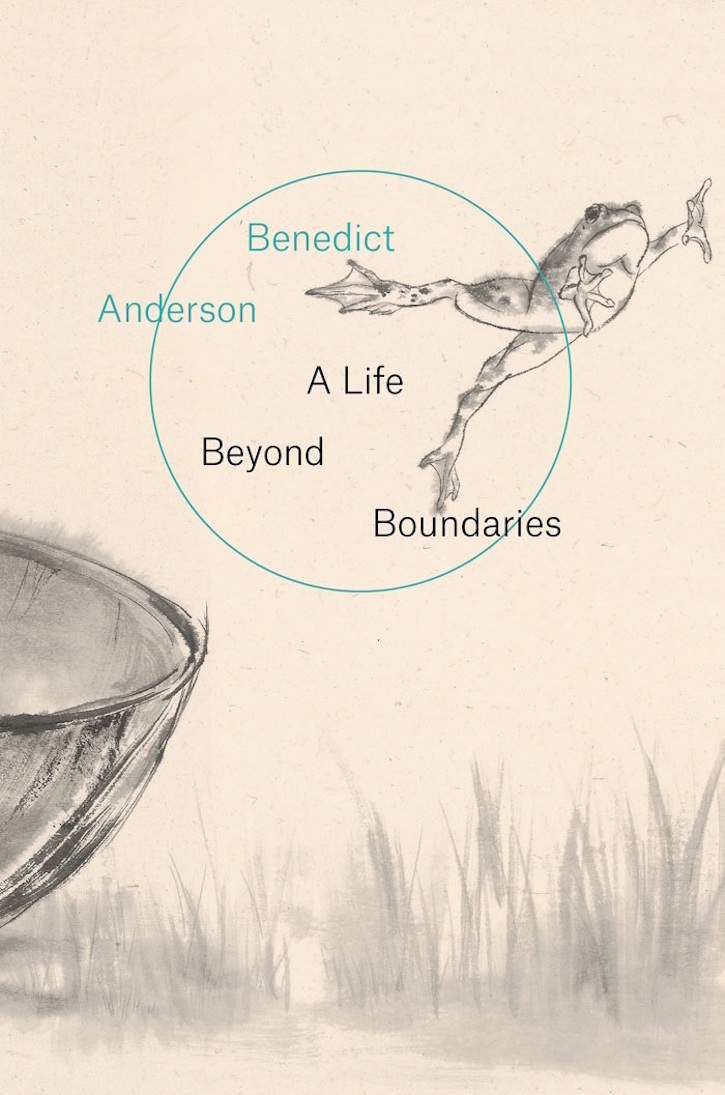Benedict Anderson’s memoir showcases a broad-minded approach to the world and Indonesia
Anthony Taylor
Benedict Anderson passed away late last year in East Java, having launched the Indonesian translation of his book Under Three Flags (Di Bawah Tiga Bendera) and recently finished the proofs for his English language intellectual memoir, A Life Beyond Boundaries. It seems fitting that Anderson was able to spend his last days in a part of Indonesia that he loved.
A Life Beyond Boundaries is a refreshing, if ‘wandering’, as Anderson puts it, final chapter in a brilliant academic career. If nothing else Anderson is a joy to read. His style is clear, yet quaint and modest; the closest comparison I can think of is his fellow Etonian, George Orwell.
Anderson was a scholar in the fullest sense of the word, taking his research, teaching and public commitments equally seriously. This text demonstrates his distinct attitude to scholarship through its style, breadth of subject matter and its clear intention to share wisdom with a target audience of ‘young scholars’ as well as the general reader. This latter aim at times, leads to an urgency of tone.
The image that ties together the reflections in A Life Beyond Boundaries and sums up Anderson’s outlook, is that of the frog that leaves the coconut shell. As he explains:
‘Both [Thai and Indonesian people] have long had a fatalistic image of a frog who lives all its life under half a coconut shell…Sitting quietly under the shell, before long the frog begins to feel that the coconut bowl encloses the entire universe. The moral judgement in the image is that the frog is narrow-minded, provincial, stay-at-home and self-satisfied for no good reason.’
Anderson tells us that he is the precise opposite of the frog, staying ‘nowhere long enough to settle down in one place.’ Certainly, he is not exaggerating: ‘[o]n the brink of puberty I had already lived in Yunnan, California, Colorado, independent Ireland, and England.’
Indonesia was an important step among many in Anderson’s intellectual formation. It was where he both applied and deepened his broad-minded sensibility. He first travelled to Indonesia as a graduate student, living and researching there between 1962 and 1964. The interlocking experiences of egalitarianism, language and culture in Indonesia at this time were crucial to both deepening and confounding his natural cosmopolitan state, particularly his thinking on nationalism.
The egalitarianism of Sukarno’s Indonesia contrasted with the entrenched English class system in which Anderson himself had spent much of his youth, and converted him to a belief in the possibility of progressive nationalism. ‘My teenage years had largely been spent in the class-ridden, hierarchical society of the United Kingdom…For this reason, Indonesia was for me a kind of social heaven.’
Anderson recounts an experience any language learner entering a native-speaking country for the first time has been through:
‘I quickly learned that the kind of formal Indonesian I had studied at Cornell was textbook stuff…I was really depressed, feeling that I was making no progress at all. Later I realised that it was like learning to ride a bicycle: when you start you fall off all the time, but then suddenly, one magic day, you get the feel of it…’
Later in the book, he elaborates on why this process was so important:
‘Such a period of struggling with a new language is especially good for training oneself to be seriously comparative…good comparisons often come from the experience of strangeness…to learn a language is not just to learn a linguistic means of communication. It is also to learn the way of thinking and feeling of a people who speak and write a language which is different from ours. It is to learn the history and culture…’
Anderson developed a love for Javanese culture, though he admits he was biased to the ‘red’ or nominally Muslim culture of the interior and south, over the ‘white’ or devout Muslim one. He writes ‘I spent a lot of time going to performances of Javanese music, shadow-plays, mask-dancing, spirit possession…’ This led to an acknowledged culturalist streak that contributed to his later theorisation in Imagined Communities, of nationalism as a culturally embedded phenomenon rather than an ideology.
For general readers with an interest in Indonesia, Anderson’s nuanced cosmopolitanism is a great example for approaching this nation, or any other nation. He concludes his memoir with some advice: ‘…what is increasingly needed is a sophisticated and serious blending of the emancipatory possibilities of both nationalism and internationalism.’
At a time of heightened parochialism in the West, A Life Beyond Boundaries serves as a timely reminder for future generations of non-Indonesians to take an interest in Indonesia. He urges people to learn the language(s) and engage deeply with the culture, but to refrain from becoming provincial; to continue to make comparisons and maintain an internationalist outlook; and to use these experiences to become more clear-headed about their own nations and the world as a whole.
Benedict Anderson, A Life Beyond Boundaries: A Memoir, London, Verso, 2016.
Anthony Taylor (taylor.af91@gmail.com) completed honours in Indonesian Studies at Monash University in 2015. His thesis explored representations of law and nation in Pramoedya Ananta Toer’s Buru Quartet.












